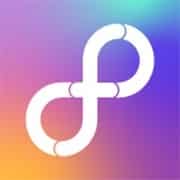Last week, we took at the way our many customers who use Workday are adding the power of artificial intelligence to their Workday HR system, when it comes to workforce planning. Next week, we’ll look at the employee experience.
First, let’s take a look at how companies are improving talent development by augmenting Workday with artificial intelligence.
We’ll break it down into four parts.
Learning. Often, employees are assigned courses; they don’t choose them based on their career goals. AI, on the other hand, can be used to recommend courses based on each employee’s goals and the skills needed to get there. It integrates with Workday Learning and other learning solutions, and provides a culture of continuous learning.
Projects. Employees typically find short-term projects by happenstance. People they’re familiar with tell them about a project (which isn’t very inclusive), or they find projects through a keyword-matching search of a database. AI changes this and levels the playing field. Employees automatically see best-fit projects based on their skills and goals. Employers match people based on capabilities, not who-knows-who, thus democratizing opportunities to the entire employee base.
Mentoring. Selecting a mentor is often a function of choosing from a lit of “buddies” or picking someone an employee is already familiar with. What our customers are doing is really “mentorship at scale,” using AI to match employees based on the skills they want to gain. This more-inclusive program boosts development and retention.
Team Development. Goal-setting, development plans, competency ratings, and performance reviews are static, manual, and infrequent. With Eightfold’s AI, managers can monitor and proactively engage in development activities (projects, courses, etc.) to help employees meet their career aspirations. This helps unlock the talent on each team.
For more, check out this in-depth look at adding AI to Workday.
